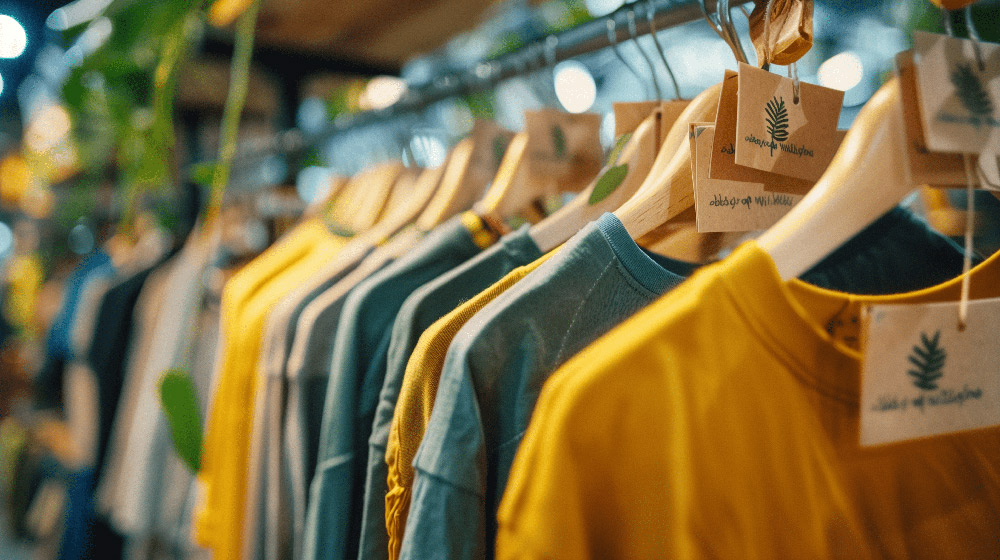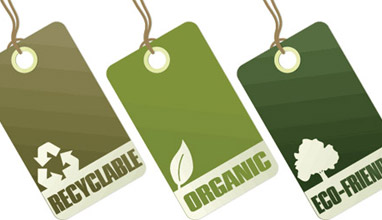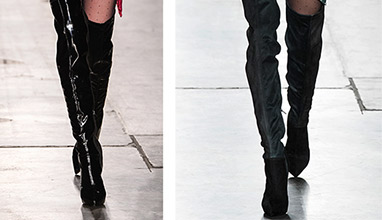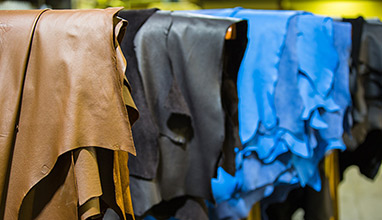Study about the priorities of young consumers regarding sustainable fashion
Within the framework of the IFM - Première Vision Chair, the Institut Français de la Mode and Première Vision release a new study on consumption patterns, focusing on young adults in the 18 to 24 and 25 to 34 age brackets and their relationship to eco-friendly fashion. The survey was conducted with a representative sample of 6,000 consumers from five countries: France, Italy, Germany, the UK and the US. It provides a detailed analysis of the perceptions, buying habits and expectations of young adults with regard to sustainable fashion. The full results will be unveiled on 2 July, at a conference hosted by Gildas Minvielle at Première Vision Paris - the leading biannual event for creative and sustainable fashion professionals.

At a time when ultra-fast fashion is shaking up the fashion sector, we wanted to do a survey with young consumers to understand their relationship to their buying habits when it comes to fashion, and in particular sustainable fashion. What this study illustrates is that a significant proportion of young people are adopting more sustainable practices, favoring brands that respect both the environment and labor conditions. Sustainable fashion is influencing buying habits for the long term. In 2024, 48.8% of French people bought a sustainable fashion item, versus 41.1% in 2023. The share of sustainable fashion products continues to rise, with almost one in two people in France now purchasing them. In Italy (52.6%) and Germany (51.4%), more than half the population already buys sustainable clothing. The younger the consumer, the more likely they are to buy eco-friendly products: in France, 58.9% of 18-24 year olds and 55.1% of 25-34 year olds have already purchased one. In Germany, 64.9% of 18-24 year olds have bought an eco-responsible fashion product during the year, compared with 51.4% of the general population. In the UK, 65.7% of 18-24 year olds have done so, versus 47.4% of the general population.
Florence Rousson, President of the Première Vision Management Board: « Eco- responsible consumption represents a fundamental shift for the fashion industry, as much in the sourcing of materials as in the manufacture and transportation of garments. As followers of this movement, the young generation now expects brands to go further in their social and ethical commitment, with the textile industry still needing to step up its efforts in terms of transparency. At Première Vision, the world leader in upstream fashion, we support all players in achieving these objectives, to help them deploy ever more creative, sustainable and ethical fashion.»
When it comes to determining the sustainability of a product, the choice of materials ranks as the most important criterion, regardless of the country surveyed. In Italy, 46.7% of the population even consider it as the main lever for a more responsible fashion industry. The UK and the US also exceed 40% on this criterion. This requirement is also reflected in the criteria for choosing a fashion item in general. Product quality is the top criterion in Italy, Germany and the United States, with a third of consumers placing it at the top of the list, with numbers rising to 37% of the population in Italy. In Italy (61.4%), Germany (62.2%), the UK (60.6%) and the US (67.1%), it is also the most important criterion cited when defining preferred brands. In France, it comes second only to price (54.7%).
The social and inclusive dimension at the heart of concerns for young consumers. For young adults aged 18 to 34, the results differ in terms of priorities: protecting the environment comes slightly ahead of the criterion of the raw materials used to determine the sustainability of a product. Similarly, when 18-24 year olds in France were asked about the values they wish to promote through their clothes, more than half (52.4%) said they choose brands that promote ethical and inclusive working conditions, compared to 26.3% for the general population, and 38.1% for 25-34 year olds.
When it comes to making purchases, the social dimension is therefore a critical criterion for young consumers. The use of higher-quality materials that are less harmful to the environment, or the use of recyclable or recycled materials, are likely to have a strong influence on young consumers' choices across the world and particularly in France. Among the values that define their favorite brands, almost 30% of young French consumers aged 18-24 cited diversity and inclusion, compared with just 14.8% for the French population in general. Transparency and good information among consumer’s key expectations for brands. In addition to the high expectations of young consumers in terms of eco-responsibility, demand for transparency and information is greater than ever.
Among those who did not make a sustainable fashion purchase this year, the main reason cited in the US (34.5%) and the UK (37.4%) was the lack of information on the subject. In Italy, not knowing where to buy these products is the main reason (33.8%). In France, price is the most frequently cited reason (41.3%). This should be seen in the context of the sums that young consumers are prepared to pay for a sustainable fashion item, which is much higher than for their elders. In France, for example, 18-24 year olds are prepared to spend €331 on a sustainable shopping basket for jeans, a T-shirt and sneakers, compared with €208 for the general population. This is the case in all of the countries surveyed, with the US having the most generous wallet: €347 for 18-24 year-olds versus €313 for the population as a whole. Consumers are aware of the cost of manufacturing a sustainable product, and are ready to absorb this in the final price of the product, provided they have the traceability and ethical information they require.
Hits: 9730 | Leave a comment





















